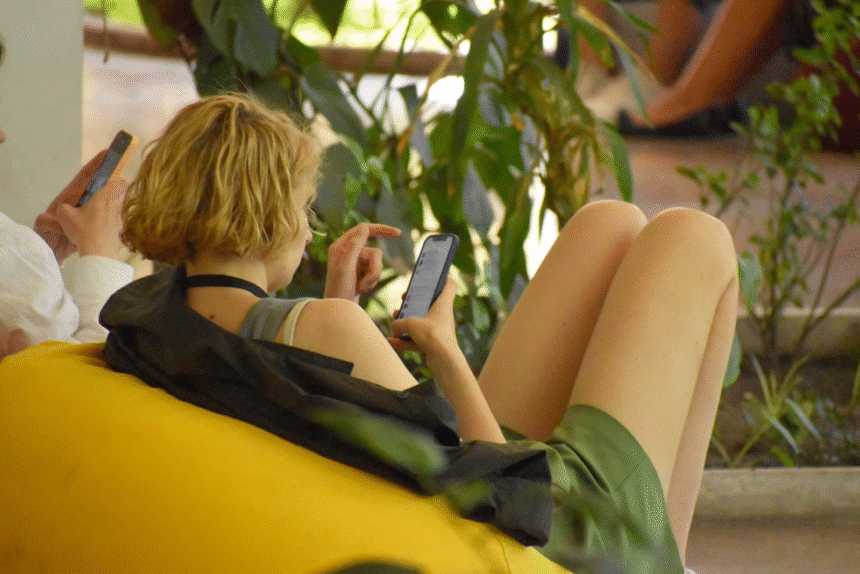In today’s hyper-connected digital age, leisure is no longer what it once was. With smartphones in almost every hand and artificial intelligence (AI) embedded in countless apps and devices, the way people experience their free time has undergone a remarkable transformation. The combination of mobile technology and AI is transforming how we entertain ourselves, unwind, explore our interests, and even connect with others.
The Mobile Device: Your Leisure Hub
The smartphone is now a central tool for leisure. It serves as a personal entertainment centre, travel planner, fitness coach, camera, and social connector—all in one. With powerful processors, high-resolution screens, and access to millions of applications, mobile devices have turned idle moments into opportunities for engagement, discovery, and relaxation.
Streaming services like Netflix, Spotify, and YouTube have become default platforms for consuming media. Both casual and immersive games are readily available and often powered by AI for personalisation and enhanced user experience. Reading, once relegated to books and newspapers, now thrives on e-readers and news apps that learn your preferences over time.
Mobile apps also offer guided meditation, language learning, and creative tools for photography, video editing, and music composition, making leisure not only about consumption but also about creation and self-improvement.
Gaming and Betting: AI Elevates the Experience
Gaming remains one of the most rapidly evolving leisure activities, driven by the integration of mobile and AI technologies. From smarter non-player characters to adaptive difficulty and personalized content, mobile games have become more immersive and user-centric than ever. This evolution extends into online casinos, where safety and innovation are at the forefront. Many online casinos now use AI-driven features to improve gameplay, offering personalized recommendations, tailored bonuses, and adaptive game settings that suit individual player styles.
Enhanced security measures, such as fraud detection and responsible gaming alerts, also help ensure a safer environment for users. Whether relaxing at home or playing on the go, players can access their favorite games instantly thanks to intuitive interfaces and seamless mobile compatibility. Combined with perks like welcome bonuses, loyalty rewards, and quick withdrawals, these innovations show how mobile and AI are transforming online casinos into a smarter, safer, and more rewarding leisure experience. (Source: https://www.pokerscout.com/casino/safe-online-casinos/)
AI-Powered Personalisation: Tailoring Leisure to the Individual
AI adds another layer of sophistication to the leisure experience by making it deeply personal. Algorithms analyse user behaviour, preferences, and habits to deliver customised content and suggestions. Whether it’s a recommended playlist on Spotify, a show queue on Netflix, or a new game suggestion on the App Store, AI ensures that leisure is tailored to fit the individual’s tastes and moods.
Moreover, AI chatbots and virtual digital assistants can suggest leisure activities, book reservations, answer trivia, or play music on command, blurring the line between tool and companion.
Even in areas like fitness and wellness, AI plays a crucial role. Apps use machine learning to analyse performance and suggest personalised workout routines. Sleep-tracking apps monitor rest patterns and offer suggestions to improve sleep quality. These innovations make leisure not only fun but also restorative and health-conscious.
Travel and Exploration in the Digital Age
Travel, once a domain of detailed planning and printed maps, is now streamlined by mobile apps and AI. Booking flights, accommodations, and excursions can be done with a few taps. AI-enhanced platforms, such as Google Maps or TripIt, help optimise travel itineraries by considering factors like traffic, weather, and personal preferences.
AI-driven translation apps enable users to navigate foreign countries with greater confidence. Augmented reality (AR) features—another offshoot of mobile and AI convergence—offer immersive experiences such as museum tours, historic site overlays, or astronomy apps that let you point your phone at the night sky to identify constellations.
For those who prefer to explore from the comfort of their own homes, the rise of virtual tourism has made this possibility a reality. AI-generated imagery, 360-degree videos, and immersive apps enable people to “travel” the world without leaving their couch.
Social Interaction and AI Companions
Leisure isn’t always solitary. Social interaction, whether online or in-person, is increasingly facilitated by mobile platforms. Social media apps use AI to recommend friends, filter content, and detect potentially harmful interactions. Group activities—such as multiplayer gaming, live streaming, or group video chats—are made more seamless with AI-enhanced features like background noise suppression, real-time translation, and facial recognition.
AI-driven virtual companions are another frontier. Apps like Replika simulate conversation and companionship using advanced natural language processing. While not replacements for human interaction, these tools can provide emotional support and help combat loneliness, especially for individuals with limited social contact.
Creativity and AI Collaboration
Creativity, once considered a uniquely human domain, is now a collaborative space where AI plays an active role. Mobile tools powered by AI assist in generating art, writing, music, and even video editing. For instance, platforms like TikTok and Instagram utilise AI filters and effects that enable users to create polished content without requiring professional skills.
AI-powered writing tools can assist users in crafting stories or journal entries. AI music generators can compose background tracks for videos or personal projects. This democratisation of creative tools allows people of all skill levels to express themselves artistically during their leisure time.
Conclusion
Mobile technology and AI have profoundly reshaped the way we experience leisure, making it more personalised, accessible, and interactive. From streaming and gaming to travel and social interaction, our downtime is more dynamic and tailored than ever. While this brings tremendous opportunities for enrichment and entertainment, it also calls for mindfulness in how we engage with these powerful tools. As mobile devices and AI continue to evolve, so too will our understanding of what it means to relax, play, and enjoy life in the digital age.















